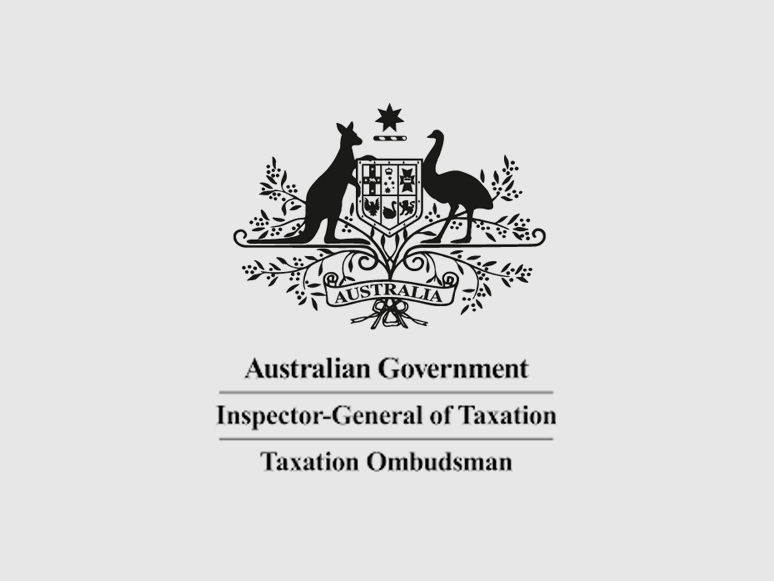logo


15th Aug, 2020

The ATO has published a list of common mistakes and misconceptions taxpayers have around tax time:
15th Aug, 2020

The ATO has extended, from 30 June 2020 to at least 30 September 2020, the “shortcut” rate for claiming work-from-home running expenses. This shortcut eligible taxpayers to claim running expenses incurred between 1 March 2020 and 30 September 2020 at the rate of 80 cents per work hour, provided they keep a record of the number of hours worked from home – for example, using a workplace timesheet.
People eligible to use the shortcut rate are employees and business owners who:
People who choose not to use the shortcut rate can instead:
15th Aug, 2020

The Inspector General of Taxation and Taxation Ombudsman (IGTO) has launched a new investigation into effective communication of taxpayers’ rights to review, complain and appeal decisions made and actions taken by the ATO. The investigation will seek to understand and confirm how effectively, clearly and completely the ATO communicates appropriate information to taxpayers and their representatives on
these taxpayers’ rights.
In examining the taxation complaints service, the IGTO has observed that information on rights of appeal and opportunities to raise complains varies across different types of ATO-issued correspondence. In particular, the IGTO found in a number of investigations that ATO correspondence may not clearly and/or completely advise taxpayers and their representatives of their rights to review, complain and appeal.
Initially, the review will focus on ATO communications which concern debt decisions in relation to individuals and small business taxpayers as they have been deemed most “vulnerable”.
After the initial stage, the review will also seek to confirm ATO communications around access to the Administrative Appeals Tribunal Small Business Taxation Division.
15th Aug, 2020

The Australian Banking Association (ABA) has announced a new phase of support to assist customers to get back to making their loan repayments. With the six-month loan repayment deferral period set to end on 30 September, the ABA said customers with reduced incomes due to COVID- 19 will be eligible to apply for an extension of their deferral for up to four months.
A deferral extension of up to four months will not be automatic. It will only be provided to those who genuinely need some extra time. Bank customers with reduced incomes and ongoing financial difficulty due to COVID-19 will be contacted as they approach the end of their initial deferral period. Wherever possible, borrowers are expected to return to a repayment schedule through a restructure or variation to their loan.
15th Aug, 2020

The Assistant Minister for Superannuation Senator Jane Hume has welcomed the recent amendments to Australia’s superannuation regulations that allow more people to make voluntary superannuation contributions from 1 July 2020.
The changes allow people aged 65 and 66 (ie under age 67) to make voluntary super contributions (both concessional and non-concessional) without meeting the work test. The amendments bring these contribution rules into line with those for individuals under 65 years, providing greater flexibility to make contributions as people approach retirement. The age limit for making spouse contributions has also been increased from 69 to 74 from 1 July 2020.
These changes to the super contributions rules were previously announced in the 2019–2020 Federal Budget. Another change in that Budget package will allow people aged 65 and 66 to make up to three years of non-concessional contributions (up to $300,000) under the bring-forward rule from 1 July 2020.
15th Jul, 2020

Tax time 2020 is here, but it’s likely to be anything but routine. Many individuals on reduced income or have increased deductions may be eager to lodge their income tax returns early to get their hands on a refund.
However, the ATO has issued a warning against lodging too early, before all your income information becomes available. It’s important to remember that employers have until the end of July to electronically finalise your income statement, and the same timeframe applies for other information from banks, health funds and government agencies.
For most people, income statements have replaced payment summaries. So, instead of receiving a payment summary from each employer, your income statements will be finalised electronically and the information provided directly to the ATO. Your income statements can be accessed through myGov and the information is automatically included in your tax return if you use myTax.
Although you may be eager to lodge as soon as possible, the ATO has warned against lodging too early, as much of the information on your income may not be confirmed until later. It’s generally important to wait until income statements are finalised before lodging a tax return to avoid either delays in processing or a tax bill later on. Your income statement will be marked “tax ready” on myGov when it’s finalised, and other information from banks, health funds and government agencies will be automatically inserted into your tax return when it’s ready towards the end of July.
If you still choose to lodge early, the ATO advises carefully reviewing any information that’s pre-filled so you can confirm it’s correct. When lodging early you’ll also have to formally acknowledge that your employer(s) may later finalise income statements with different amounts, meaning you may need to amend your tax return and additional tax may apply.
With the great disruptors of the Australian bushfires and the global coronavirus (COVID-19) pandemic, and the associated government economic stimulus measures, there are some key tax-related matters for everyone to be aware of this year.
The ATO has a range of approaches to support taxpayers through tax time 2020, especially where new circumstances mean you might be receiving a different type of income or be able to claim new deductions.
The ATO’s Tax Time Essentials page (www.ato.gov.au/taxessentials) provides a one-stop- shop for the things that are a little different this year and how they impact tax returns.
People accessing super early as a part of the COVID- 19 early release scheme can rest assured that this money will not form a part of their assessable income. To date, 1.98 million people have withdrawn an average of $7,475 from their super under the scheme.
Another key difference this year is the introduction of the optional simplified method for claiming work from home expense deductions. This method allows you to claim 80 cents for each hour you worked from home from 1 March 2020 to 30 June 2020, to cover all deductible expenses. However, if you were working from home before 1 March 2020 or have documented actual expenses that work out to be more than 80 cents per hour you can still use the usual method to claim expenses related to working from home.
If you were unable to work from home and had to take leave or were temporarily stood down, if your employer made any kind of payment, either regular or one-off, those amounts will need to be declared as wages and salary on your return and tax will apply at your usual marginal rates. This applies regardless of whether the payments are funded by the government JobKeeper scheme.
If you’ve been made redundant or had your employment terminated, any payment you receive may consist of a tax-free portion and a concessionally taxed portion, which means that you could potentially pay less tax.